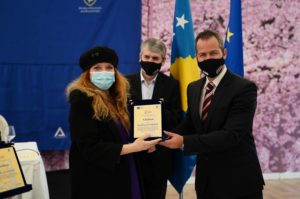
Technical Assistance for Border Enforcement of Intellectual Property Rights (IPR) for Modernization of Turkish Customs Administration VIII
It is essential to modernize customs legislation and practices in line with the EU standards for proper and effective implementation of the Union Customs Code. In this context, the purpose of the project was to improve the administrative capacity of the Turkish Customs Administration, raise awareness and increase

Technical Assistance for the Operation “Employment and Social Support Services Coordination and Implementation Model for the Integration of Disadvantaged Persons”
The case can be made that disadvantaged persons have both a lack of access and barriers of entry into the labour market. Based on this declaration, the purpose of the operation was to contribute to the sustainable integration of disadvantaged persons into the labour market by establishing and

EU Support for the Competitiveness of Kosovo’s ICT Sector
This initiative’s overall objective is to enhance the competitiveness of Kosovo’s digital and traditional businesses by supporting the growth of Kosovo’s Information and Communication Technology (ICT) sector, paving the way for growth and new job creation. The project aims to bridge the digital and business skills gap in

Technical Assistance for Gaziantep Regional Industrial Design and Modelling Centre (GETAM)
The Gaziantep region has great potential for several manufacturing areas; however, sometimes, it requires some support from well-qualified projects to achieve adequate results. Therefore, the overall objective of the project was to increase the competitiveness and economic welfare of the Gaziantep region. More specifically, it aimed to strengthen

Technical Assistance for the Programme Entitled ‘Institutional Strengthening to Promote Decent Work in Honduras (EURO+LABOR)
It’s considered essential to systematically promote decent work for the labour market of a country. In this regard, the mission of the Programme EURO + LABOR was to ensure “a country with decent employment opportunities for the population of Honduras” based on the Honduras Government’s priorities and National

Capacity Development of Employees and Employers via Information and Communication Technologies (ICT)
In Turkey, in common with all other countries, both employers and employees need to be aware of, and be able to use, the latest ICT tools in the workplace to improve the efficiency and competitiveness of their businesses and take best advantage of personal development opportunities. This project,

